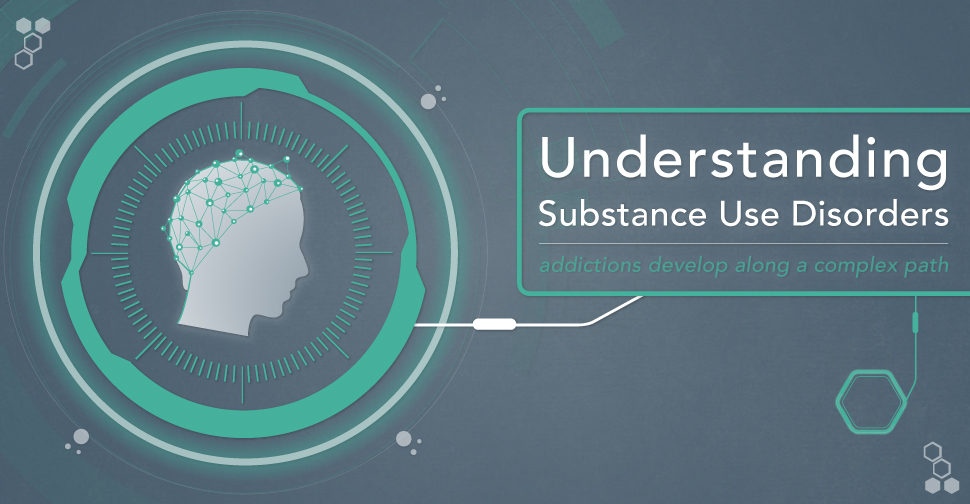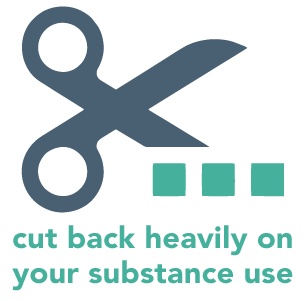
Millions of people across the nation use and abuse various addictive substances every day. The allure of the high produced by these substances makes them hard for many people to turn down. However, it is important to know that occasional use doesn’t necessarily indicate a serious problem. Substance use disorders occur when a person uses drugs or alcohol too often, and they are often among the steps involved in developing an addiction.
Understanding the nature of substance use disorders, how they are developed, and the ways they transform into addictions is crucial in learning how to live a sober life. Please read carefully through the following information to gauge whether you or somebody you love has developed a substance abuse disorder and what you can do to help.
What Are Substance Use Disorders (SUD)?
The first step in understanding substance use disorders is knowing what they are and what they aren’t. Let’s start with the definition given by the Substance Abuse And Mental Health Services Administration, the leading authority on drug abuse in the country. They state that substance use disorders “…occur when the recurrent use of alcohol and/or drugs causes clinically and functionally significant impairment, such as health problems, disability, and failure to meet major responsibilities at work, school, or home… a diagnosis of substance use disorder is based on evidence of impaired control, social impairment, risky use, and pharmacological criteria.”

So do you suffer from a substance use disorder if you drink a glass of wine before bed? Not if your drinking doesn’t cause functional impairment. A glass of wine isn’t going to seriously impact your health in a major way. Do you suffer from a substance use disorder if you smoke marijuana once or twice every two months? While we don’t recommended such behavior, it doesn’t fall under the SUD heading.
However, let’s say that you don’t drink every day, but that you binge drink on Friday and Saturday, drinking six or more alcoholic beverages on each of those days. You’re stone sober Sunday through Thursday, but you like to “cut loose” on the weekends. Does your drinking behavior fall under the heading of a substance use disorder? Absolutely. Drinking more than five alcoholic beverages in a 24-hour period is defined as a “binge drinking” substance use disorder.
At this point, it is considered a disorder because it could impact your health and your social life. Imagine binge drinking on Friday, getting pulled over, and receiving a citation for a DUI or DWI. Your binge drinking has negatively impacted your life. Though illegal and dangerous, snorting one line of cocaine in a year doesn’t constitute a substance use disorder. However, if you use cocaine heavily every weekend, you are putting your life, social standing, and legal status in dangerous positions.
In this way, even smoking cigarettes can be lead to a substance use disorder. People who smoke multiple cigarettes on a daily basis are seriously impacting their health and potentially alienating themselves from friends who are non-smokers. While nowhere near as serious as drug or alcohol SUDs, it is worth knowing that tobacco consumption still falls under this heading.

What Drugs Are Most Commonly Abused?
Now that you better understand substance use disorders, you need to learn more about commonly abused substances and their effects. The National Institute On Drug Abuse defined the following substances as the most commonly abused in the nation:
- Alcohol – Though a legal and socially acceptable drug, alcohol is among the most dangerous and destructive. It not only quickly causes physical, psychological, and physiological changes in a person, but can lead to serious social and legal problems.
- Marijuana – Use commonly begins in high school, with many claiming it is a relatively safe or benign substance. However, it drastically impairs your memory, ability to focus, coordination, and can even seriously decrease IQ.
- K2 or Spice – A type of “synthetic marijuana.” Usage is still legal in many states even though it can cause increased heart rate, nausea, hallucinations, and even heart attacks.
- Prescription Drugs – There are a variety of drugs on the market, such as opioids, stimulants, depressants, and cough syrups that are abused to get a cheap and legal high.
- Cocaine – Though not as popular as it once was, cocaine remains among the most commonly abused drugs. It’s quick effect, short withdrawal period, and lack of significant physical addictiveness make it popular, but it is among the most dangerous as it can cause heart attacks almost instantly.
- Heroin – Potent and dangerous, heroin often attracts people who are intrigued by the myths surrounding it. Unfortunately, it is one of the toughest drugs to beat and develops very quickly from substance abuse to addiction.
Many of these substances are quickly physically addictive, while others take a longer time to become addictive. In some cases, even one use may trigger a substance use disorder, as a person feels a great need to continue using. This is common with heroin, due to its potent effect. Though a person may not be addicted after one hit, they may feel addicted due to their strong impulse to use.
Are Substance Use Disorders And Addiction The Same Thing?
Addiction is a complex situation. Often, people mistake it for pure physical dependence, such as suffering from withdrawal symptoms if you quit using alcohol. While physical dependence is a major part of addiction (and one of its defining traits), physical dependence alone does not make addiction. Addiction also requires a compulsive and uncontrollable psychological need to use.
Addiction requires subtle chemical changes in the brain that compel a person to continue using drugs or alcohol, even if they understand that they are hurting themselves and want to quit. As a result, true addiction requires physical, psychological, and even physiological changes in a person, changes that occur through continual and sustained exposure to a substance.
People with substance use disorders often feel compelled to use their substance of choice, but are typically not at the level of addiction. Their behaviors may be very close to addictive behaviors, but they have yet to suffer the complex changes that lead to true addiction. This means they are hovering on the precipice of the cliff of addiction, one which would be very easy for them to tumble down if they don’t make important changes in their life.
Thankfully, it is possible to reverse course and prevent addiction by taking charge of your substance use disorder. This requires taking an honest look at your use and deciding if it is a problem. If you have suffered from physical health problems, decreased psychological balance, problems with friends and family, or even legal concerns as a result of your substance use, you likely have a disorder that must be taken care of as soon as possible.
How Do Substance Use Disorders Progress?
Substance use disorders and addictions develop along a complex path that differs between each person. Typically, they are a result of a negative experience in a person’s life, though happy and well-adjusted people can also develop substance use disorders if they let their use get out of control. Typically, substance use disorders progress towards addiction along this timeline:
- Starting point – Substance use disorders are often inspired by something negative in a person’s life, such as depression, anxiety disorders, or the loss of a family member. They can also be affected by a family history of substance abuse or a genetic predisposition.
- Developing abusive behaviors – Once an SUD starts, it often progresses through a series of behaviors. For example, a person may start out binge drinking on the weekends and progress to drinking daily. During this progression, they adjust to a lifestyle of substance use and make excuses for why it is okay.
- Problems begin occurring – As a substance use disorder develops, a person is likely to go through various personal problems caused by the disorder. These problems often cause shame, depression, anxiety, and emotional turmoil that commonly lead to increased usage.
- Loss of control – Just before a person develops an addiction, they start to lose control of their substance use. They are probably using excessive amounts every day and are rarely, if ever, sober. They are likely running into a log of legal problems and struggle to maintain positive personal relationships. They may seem like a completely different person.
This sad cycle is one that millions of people fall into every year, but it can be stopped. However, it is much easier to prevent an addiction from developing than it is to treat an addiction, which is why you need to work hard to prevent a substance use disorder from becoming an addiction.
How Can You Prevent A Substance Use Disorder From Becoming An Addiction?
 If you believe that you or a loved one have developed an SUD, you need to do the smart thing and cut back heavily on your substance use. This may be hard for you if you have developed a social need to use, such as taking smoke breaks with your co-workers or getting drinks after work with friends. However, it is important to nip this problem in the bud before it develops into the multi-headed hydra of addiction.
If you believe that you or a loved one have developed an SUD, you need to do the smart thing and cut back heavily on your substance use. This may be hard for you if you have developed a social need to use, such as taking smoke breaks with your co-workers or getting drinks after work with friends. However, it is important to nip this problem in the bud before it develops into the multi-headed hydra of addiction.
Unfortunately, you might feel some minor withdrawal symptoms when you cut back on your use. This can make it painful to cut back. It may compel you to continue using, putting you at risk for addiction. Try to find a “sober buddy” that is trying to quit using the same substance at the same time. You can support each other by finding activities that don’t include your former substance. Try to avoid going to places and spending time with people who may cause you to use.
Visiting a sobriety group, such as Alcoholics or Narcotics Anonymous might also be a good idea. Here, you will be around people who are struggling with addiction and are willing to support you in your fight. You may not have developed a true addiction, but spending time with people who have beaten one can give you the strength and focus you need to stay clean. You may also want to visit an outpatient rehab center to get advice and counseling on how to avoid using.
You basically need to do everything you can to either completely quit using (if you fear you have no control) or find a way to moderate your use. For many people this will take a lot of willpower. In fact, it might be outside of the abilities of those who are right on the fringe of developing an addiction. However, life is too short to spend it enthralled by a substance, making this fight one you can’t lose.
Let Us Help You In Your Fight Against Substance Abuse
 At DrugRehab.org, we can help you in the fight against substance use disorders and addiction. Whether you are struggling with alcohol, heroin, cocaine, morphine, prescription drugs, or any other kind of substance, our experts can help you identify the root of your problem and find a way to eliminate it from your life. We will work hand-in-hand with you to prevent addiction or to help you move through the stages of addiction recovery.
At DrugRehab.org, we can help you in the fight against substance use disorders and addiction. Whether you are struggling with alcohol, heroin, cocaine, morphine, prescription drugs, or any other kind of substance, our experts can help you identify the root of your problem and find a way to eliminate it from your life. We will work hand-in-hand with you to prevent addiction or to help you move through the stages of addiction recovery.
You deserve a sober and happy life, so please don’t hesitate to contact us today. You’ll be glad you made that 20-minute commitment to talking with us and learning more about your substance use disorder and addiction recovery.
Sources
Substance Abuse And Mental Health Services Administration – Substance Use Disorders
National Institute On Drug Abuse – Most Commonly Abused Drugs
University Of Pennsylvania Health System – Progression Of Addiction
The National Alliance of Advocates for Buprenorphine Treatment – Physical Dependence and Addiction: An Important Distinction


